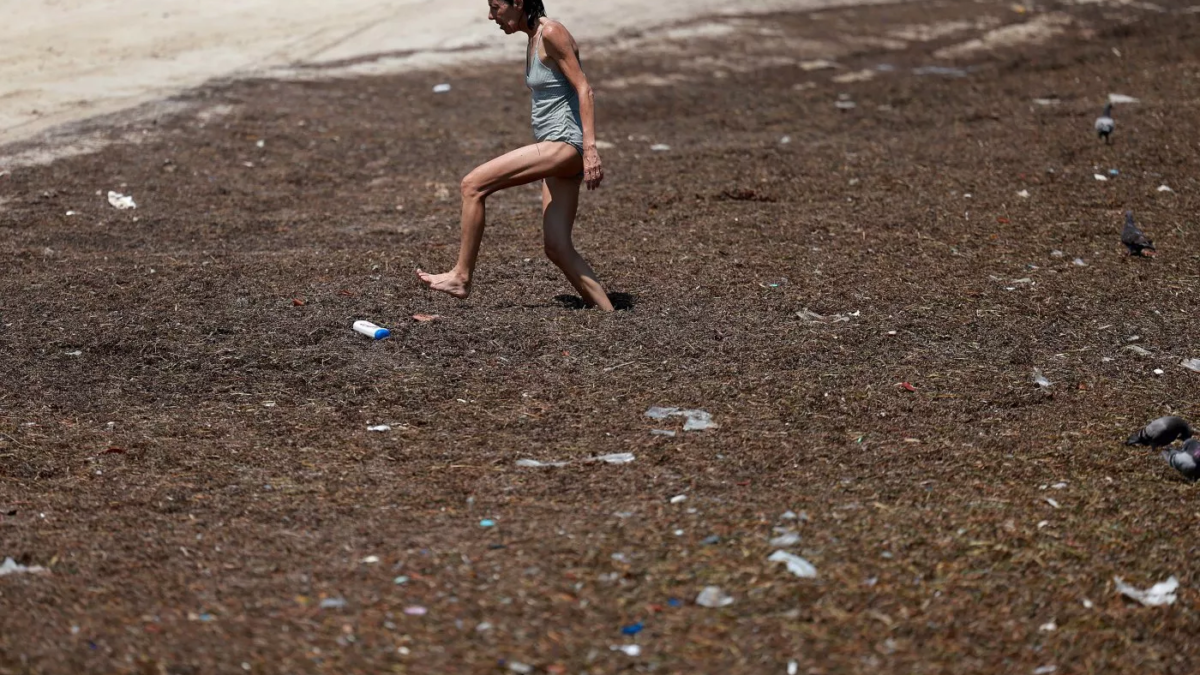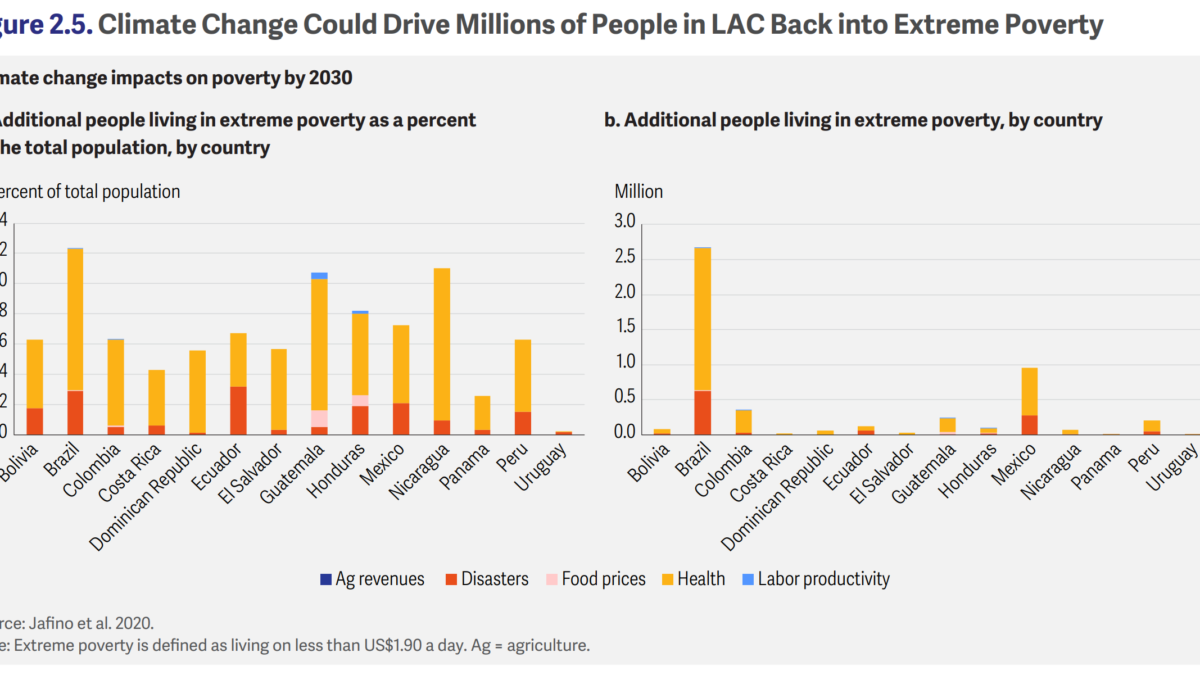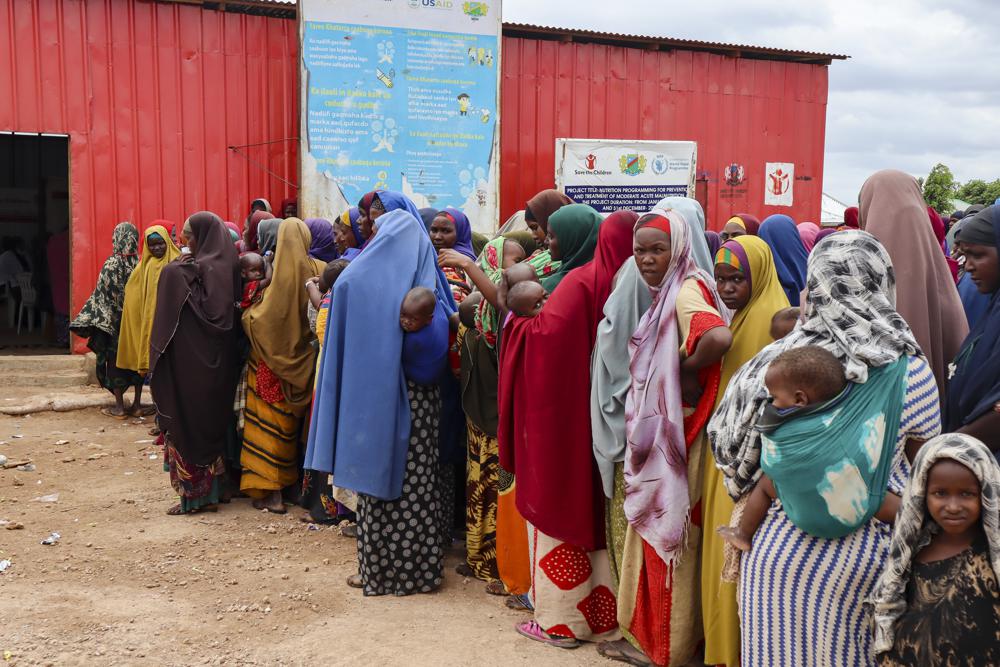Flu, lice, and open toilets: What attorneys saw at migrant child processing centers in Texas – “In my 22 years of doing visits with children in detention, I have never heard of this level of inhumanity”
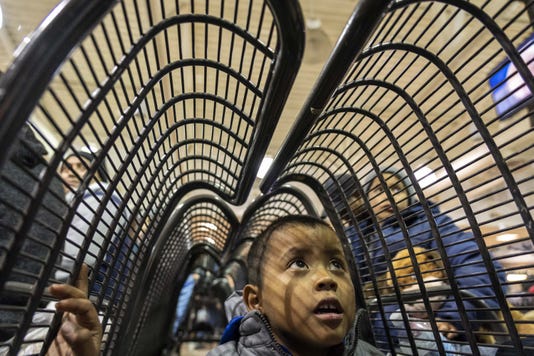
By Gaby del Valle
22 June 2019
(Vice News) – Attorneys who work with migrant children recently visited two Border Patrol processing centers along the U.S.-Mexico border — and what they saw paints a bleak picture of the Trump administration’s treatment of child migrants. [It seems Desdemona’s worst fears are being realized: Children of Men, ten years later. –Des]
The attorneys said that hundreds of kids are being held in filthy, overcrowded, and increasingly dangerous conditions at the Border Patrol station in Clint, Texas and the Ursula processing center in McAllen, Texas — often for weeks at a time. The facilities are riddled with flu and lice outbreaks and often lack proper adult supervision. Some older kids even have to take care of the younger ones.
“I have not seen conditions like this before,” said Warren Binford, a law professor at Williamette University and part of the team who went to Clint, Texas. “They [Border Patrol agents] say, ‘We are on your side. Children don’t belong here; they need to get to appropriate facilities because we can’t appropriately care for them here.’”
Basically, what we saw are dirty children who are malnourished, who are being severely neglected. They are being kept in inhumane conditions. They are essentially being warehoused, as many as 300 children in a cell, with almost no adult supervision.
Warren Binford, professor of law at Willamette University
These Border Patrol stations are temporary processing centers and were never intended to be used as long-term shelter. They’re not equipped with beds or blankets, and the temperatures are often so cold that migrants refer to them as “hieleras” — iceboxes. In fact, federal rules dictate that unaccompanied migrant children who arrive in the U.S. shouldn’t be kept in Border Patrol stations for more than 72 hours.
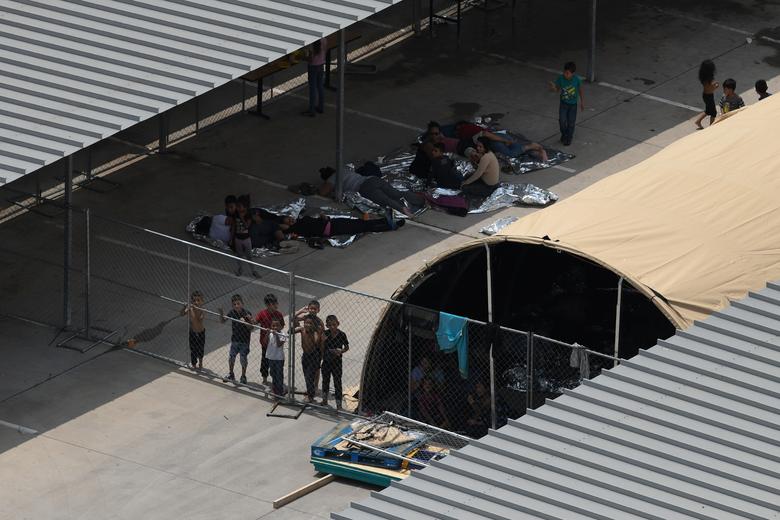
After that point, children are supposed to be picked up by the Office of Refugee Resettlement and transferred to a shelter for child migrants. That’s where they stay while the government works to reunite them with a sponsor, usually a parent or another family member already in the country.
Customs and Border Protection and the Office of Refugee Resettlement did not respond to a request for comment.
Children sleeping in a “warehouse”
Children at the Clint facility described being forced to sleep in crowded “cells,” Binford said. Some were given mats to sleep on. Others, including babies, were forced to sleep on the floor.
“The children consistently described that numerous children sleep on a single mat. Some have six children on a mat,” she said.
Overcrowding at the station has facilitated the spread of diseases, including the flu, Binford said. The problem has been made worse by filthy conditions. Some of the cells have open toilets. Fifteen children in the facility have the flu and 10 others have been quarantined, according to the Associated Press.
“There is no soap for the kids to wash their hands with. We saw many, many sick children,” she said. “We immediately saw children who were coughing and had runny noses. They had mucus all over their shirts.” […]
A flu outbreak
Lawyers who visited the Ursula processing center in McAllen described similar conditions at those at Clint and warned that several children were in need of immediate medical attention. When Toby Gialluca, an attorney with the National Center for Youth Law, and other attorneys visited the station last week, they were greeted by dozens of sick children.
“I can’t give a medical opinion — we didn’t have the capability to test them — but everyone I saw was exhibiting some degree of respiratory illness,” Gialluca told VICE News.
This was a planned visit. This was with warning. What’s going on when they don’t know we’re coming?
Toby Gialluca, National Center for Youth Law attorney
Hope Frye, an immigration attorney who led the site visit, told VICE News that she caught Influenza A while interviewing the children and had to be hospitalized. But the children in the station weren’t given that level of medical attention, she said.
“They are sleeping in concrete in a freezing place. They’re not being fed. They don’t have water and soap,” Frye said. “They don’t even have blankets, they have pieces of aluminum foil.” […]
“This was a planned visit,” Gialluca said. “This was with warning. What’s going on when they don’t know we’re coming?” [more]
Flu, Lice, and Open Toilets: What Attorneys Saw at Migrant Child Processing Centers
Four migrant toddlers hospitalized after time at US border facility: lawyers
By Morgan GStalter
22 June 2019
(The Hill) – Immigration attorneys said four toddlers, all under the age of 3, were hospitalized last week after spending time at a U.S. Border Patrol facility in McAllen, Texas.
Toby Gialluca, a Florida-based attorney, told HuffPost on Friday that the children, who have teenage parents or guardians, were coughing and vomiting and had fevers and diarrhea.
One 2-year-old’s eyes reportedly rolled to the back of her head, according to Gialluca, and she was “completely unresponsive.”
Their immediate condition is unknown.
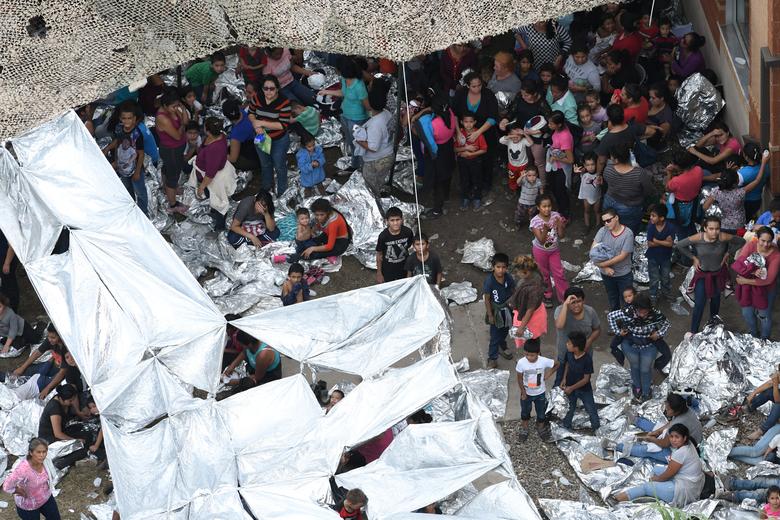
“It’s just a cold, fearful look that you should never see in a child of that age,” Gialluca said. “You look at them and you think, ‘What have you seen?’”
The lawyers told the outlet that they forced the government to hospitalize the children and feared that the children would have not received medical attention had they not toured the facility.
“It’s intentional disregard for the well-being of children,” Gialluca said. “The guards continue to dehumanize these people and treat them worse than we would treat animals.” [more]
Four migrant toddlers hospitalized after time at US border facility: lawyers
Attorneys: Texas border facility is neglecting migrant kids
By Cedar Attanasio, Garance Burke, and Martha Mendoza
21 June 2019
EL PASO, Texas (AP) – A 2-year-old boy locked in detention wants to be held all the time. A few girls, ages 10 to 15, say they’ve been doing their best to feed and soothe the clingy toddler who was handed to them by a guard days ago. Lawyers warn that kids are taking care of kids, and there’s inadequate food, water and sanitation for the 250 infants, children and teens at the Border Patrol station.
The bleak portrait emerged Thursday after a legal team interviewed 60 children at the facility near El Paso that has become the latest place where attorneys say young migrants are describing neglect and mistreatment at the hands of the U.S. government.
Data obtained by The Associated Press showed that on Wednesday there were three infants in the station, all with their teen mothers, along with a 1-year-old, two 2-year-olds and a 3-year-old. There are dozens more under 12. Fifteen have the flu, and 10 more are quarantined.
Three girls told attorneys they were trying to take care of the 2-year-old boy, who had wet his pants and had no diaper and was wearing a mucus-smeared shirt when the legal team encountered him.
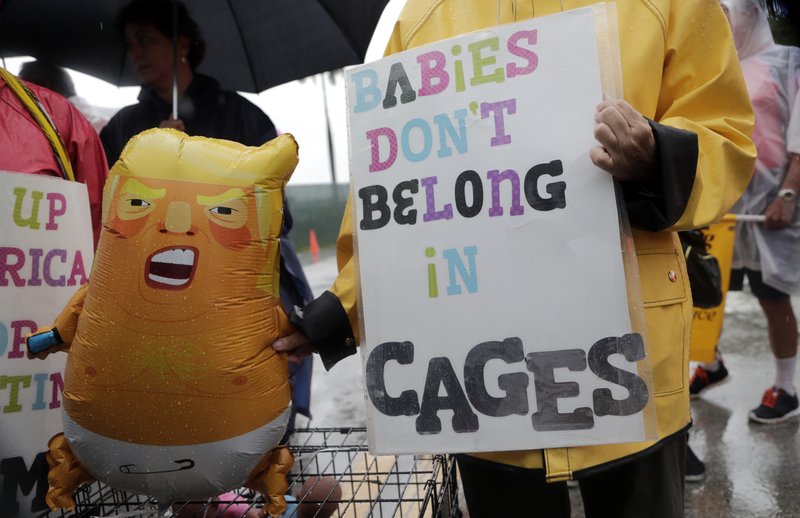
“A Border Patrol agent came in our room with a 2-year-old boy and asked us, ‘Who wants to take care of this little boy?’ Another girl said she would take care of him, but she lost interest after a few hours and so I started taking care of him yesterday,” one of the girls said in an interview with attorneys.
Law professor Warren Binford, who is helping interview the children, said she couldn’t learn anything about the toddler, not even where he’s from or who his family is. He is not speaking.
It’s just a cold, fearful look that you should never see in a child of that age. You look at them and you think, “What have you seen?”
Toby Gialluca, National Center for Youth Law attorney
Binford described that during interviews with children in a conference room at the facility, “little kids are so tired they have been falling asleep on chairs and at the conference table.”
She said an 8-year-old taking care of a very small 4-year-old with matted hair couldn’t convince the little one to take a shower.
“In my 22 years of doing visits with children in detention, I have never heard of this level of inhumanity,” said Holly Cooper, who co-directs University of California, Davis’ Immigration Law Clinic and represents detained youth. [more]
Attorneys: Texas border facility is neglecting migrant kids
A firsthand report of “inhumane conditions” at a migrant children’s detention facility
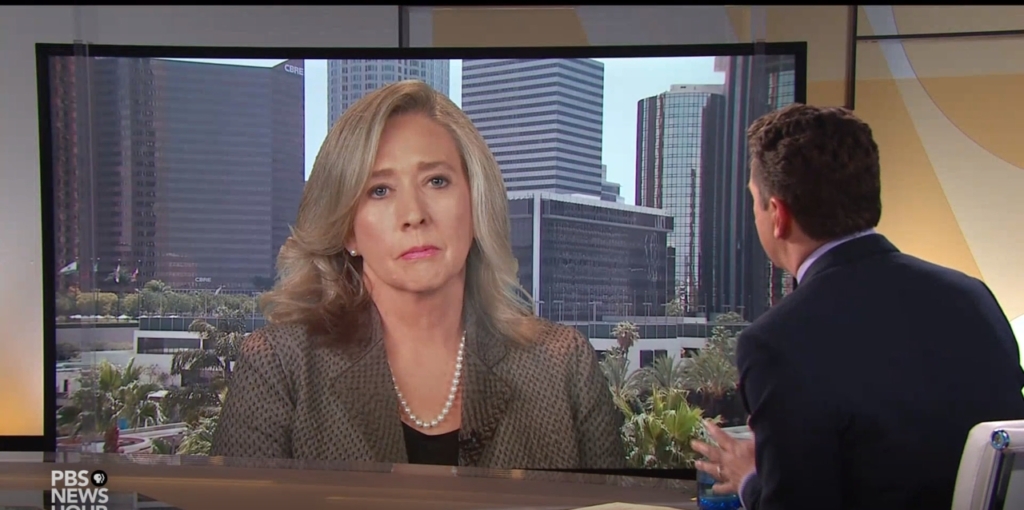
21 June 2019 (PBS Newshour) – The Associated Press details grave conditions inside a Texas migrant detention facility where 250 infants, children and teenagers were being held without adequate food, water or sanitation during a recent visit. Warren Binford, a law professor at Willamette University, joins William Brangham to share her firsthand account, what Border Patrol agents think and what’s next for these children. […]
William Brangham: The Associated Press detailed conditions inside a Customs and Border Patrol detention center in Clint, Texas, were, allegedly, 250 infants, children and teenagers are being held.
According to the AP, there’s not adequate food, water or sanitation inside. The report describes teen mothers and other younger kids being asked to care for infants and toddlers on their own, with little or no help from any adults.
Warren Binford is one of the lawyers that visited that Texas facility and spoke with the children being held inside. She’s a law professor at Willamette University in Oregon.
Professor Binford, thank you very much for being here.
As I mentioned, you were inside this Texas facility. Can you just give us some sense of what it is you saw inside?
Warren Binford: Yes.
Basically, what we saw are dirty children who are malnourished, who are being severely neglected. They are being kept in inhumane conditions. They are essentially being warehoused, as many as 300 children in a cell, with almost no adult supervision.
We have children caring for other young children. For example, we saw a little boy in diapers — or he had no diapers on. He should have had a diaper on. He was 2 years old. And when I was asked why he didn’t have diapers on, I was told he didn’t need it.
Basically, what we’re doing is, we’re taking children away from their family at the border. We’re putting them in inhumane conditions in Border Patrol facilities, where they shouldn’t be at all, not even for a few hours.
Warren Binford, professor of law at Willamette University
He immediately urinated. And he was in the care of another child. Children cannot take care of children, and yet that’s how they are trying to run this facility. The children are hardly being fed anything nutritious, and they are being medically neglected.
We’re seeing a flu outbreak, and we’re also seeing a lice infestation. It is — we have children sleeping on the floor. It’s the worst conditions I have ever witnessed in several years of doing these inspections. […]
Basically, what we’re doing is, we’re taking children away from their family at the border. We’re putting them in inhumane conditions in Border Patrol facilities, where they shouldn’t be at all, not even for a few hours. And that 72 hours, that’s the maximum that someone is supposed to be kept there. [more]
A firsthand report of ‘inhumane conditions’ at a migrant children’s detention facility
